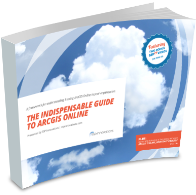It’s safe to say that a successful transition to Esri’s new ArcGIS Platform and Utility Network (UN) doesn’t happen by chance. There are a significant number of applications, IT infrastructure, architectures, integrations, and data related considerations that comprise a UN implementation. Beyond all of the technical aspects, there are a variety of organizational and people elements that play an essential role in ensuring the overall project success.
Identifying those organizational and people elements prior to the start of a UN transition can be accomplished through a UN Organizational Readiness (OR) assessment.
Simply stated, a UN OR assessment is a measurement of the preparedness of your utility to undergo a transition to Esri’s Utility Network. You don’t want to jump into a project the has the potential to transform the technology, data, people, and processes without knowing if your organization has the resources and capacity to accomplish it effectively.
Conducting an UN OR assessment will provide you the knowledge and assurance that your transition to the Utility Network will be successful when you’re ready.
A UN OR assessment typically assesses the following:
- Project goals and objectives
- Expectations and concerns
- Leadership support of the project
- Ability to adapt to the changes with technology, processes, people, and data
- Ways to minimize potential project failure and change fatigue
- Project governance, sponsorship, and decision making
- Other critical project needs
UN OR Assessments Help You Identify Potential Project Failures
A UN OR assessment gives your organization the ability to identify and address any potential issues before they become big problems as you move forward on the proposed project. This is important because it will save time and money by ensuring risks are identified so a plan can be prepared to address them at the proper time.
UN OR Assessments Help You Address Changes with Employees
The UN OR assessment allows you to address the details of the change with your employees to determine if they are ready for such change and have the ability and resources, they need to do their part in it. Being kept in the loop and engaged with what the utility is doing will make your employees feel more valued, which will increase their personal investment in the proposed project and motivate them to want to do their part in it well.
UN OR Assessment Will Help You Target Project Success Factors
A good UN OR assessment means having good organizational programs and project readiness. These are the precursors of quality improvement and are achieved when your utility feels like it is ready to make the transition to the UN. An early sign of organizational readiness is your utility’s willingness to alter your current practices to align with the needs of the UN project to ensure an effective implementation. The assessment will target your available resources, the characteristics of your employees and organization, and areas in which your utility needs to improve in order to take on the project and make it a success.
Applying your UN OR Assessment Results
The results of the UN OR assessment will give you the additional benefit of identifying the strengths of your organization, most particularly the things that will be the strongest assets for you in your UN project and the associated technology, data, people, and process changes.
Finally, your UN OR assessment will allow you to know whether your utility meets the requirements to even consider a UN project given the various operational and business parameters. If you don’t have the requirements now, the assessment will let you know what you need to acquire and any changes you need to make or training you need to do in order to make the UN project a successful one that your utility can effectively accomplish.


What do you think?